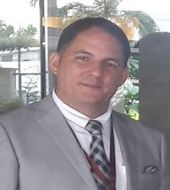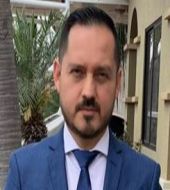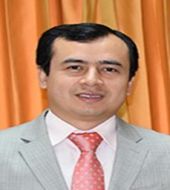Academic planning, a valuable tool for the quality of the teaching and learning processes in Torremar Bilingual School (UEBT)
Main Article Content
Abstract
Academic planning is a critical tool in teaching and learning processes. It includes higher education processes that ensure that an educational institution follows a designated plan and meets vital objectives. The importance of academic planning is due to the influence and impact it has on students' learning results, besides being the basis and central axis of the educational teaching process.
Based on the characteristics of the new school and the aspects that involve the educational reform required to respond to the developmental needs of students in the current contemporary world, teachers need to avoid traditional practices and not teach content based on the improvisation of activities.
For educators, it is critical that academic planning is viewed as more than a simple administrative requirement needed by the Academic Coordination. It is a valuable instrument for the quality of the classes, where the students contribute to their learning as part of the Conceptual Framework of Teaching for Understanding [EpC acronym in Spanish], which we have applied in our Educational Institution for the past three years.
To provide a more throughout review of the benefits and relevance of academic planning for education, an investigation is provided in the following sections regarding the implementation within quality teaching and learning processes at Torremar Bilingual School [UEBT acronym in Spanish]. As such, the purpose of this study is to explore the sequences that lead to steps for academic planning to meat final goals. For this purpose, a review of relevant literature and a presentation of the critical stages of academic planning are presented.
Downloads
Article Details
1. Derechos de autor
Las obras que se publican en 593 Digital Publisher CEIT están sujetas a los siguientes términos:
1.1. 593 Digital Publisher CEIT, conserva los derechos patrimoniales (copyright) de las obras publicadas, favorece y permite la reutilización de las mismas bajo la licencia Licencia Creative Commons 4.0 de Reconocimiento-NoComercial-CompartirIgual 4.0, por lo cual se pueden copiar, usar, difundir, transmitir y exponer públicamente, siempre que:
1.1.a. Se cite la autoría y fuente original de su publicación (revista, editorial, URL).
1.1.b. No se usen para fines comerciales u onerosos.
1.1.c. Se mencione la existencia y especificaciones de esta licencia de uso.
References
Burbano Collazos, A. (2016). Integrated curriculum design for an industrial engineering undergraduate program in Latin America. In 123rd ASEE Annual Conference and Exposition-2016 (Vol. 2016). American Society for Engineering Education.
Cammarata, L., & Haley, C. (2018). Integrated content, language, and literacy instruction in a Canadian French immersion context: A professional development journey. International Journal of Bilingual Education and Bilingualism, 21(3), 332-348.
Casanova, M. A. (2006). Curriculum design and educational innovation. Madrid: The Wall.
Castillo Conde, D. A., Almeida García, E. V., Chiluiza Vásquez, W. P., & Mejía Gavilánez, P. G. (2017). Micro–curricular planning based on tongue twisters as a pronunciation strategy. Internatioanl Journal of Pedagoogy, 24(2), 12-15.
Cohen, D. K., Spillane, J. P., & Peurach, D. J. (2018). The dilemmas of educational reform. Educational Researcher, 47(3), 204-212.
Díaz-Barriga, A. F. (2006). Teaching situated: The links between school and life Introduction. Mexico City, MX: Mc Graw-Hill Interamericana.
Giroux, H. A. (2019). Beyond the limits of radical educational reform: toward a critical theory of education. Journal of Curriculum Theorizing, 2(1), 23-45.
Hanushek, E. A., Ruhose, J., & Woessmann, L. (2017). Economic gains from educational reform by US States. Journal of Human Capital, 11(4), 447-486.
Imrie, R. (2016). The knowledge business in academic planning research. In Ethics and planning research. San Diego, CA: Routledge Press.
Magana, E. C. (2016). Pedagogy of Death and Mourning Process. Stories as Didactic Resource. Reice-Revista Iberoamericana sobre Calidad Eficacia y Cambio en Educacion, 14(2).
Murillo, J. (2011). Who is responsible for the results of the Assessments?: Toward a value-added approach in education. REICE. Revista Iberoamericana on quality, effectiveness, and change in education, 8(4), 3-9.
Murillo, J., Martínez-Garrido, C., & Hernández-Castilla, R. (2011). Decalogue for effective teaching and learnin., Revista Iberoamericana on quality, effectiveness, and Change in Education, 9(1), 6-27.
Muhammad, I. A. (2019). The role of didactic and authentic pedagogy toward student’s achievement. United Kingdom, London: Sage Press.
Nguyen, H. T. M., & Bui, T. (2016). Teachers’ agency and the enactment of educational reform in Vietnam. Current Issues in Language Planning, 17(1), 88-105.
Paciotto, C., & Delany-Barmann, G. (2011). Planning micro-level language education reform in new diaspora sites: Two-way immersion education in the rural Midwest. Language Policy, 10(3), 221.
Sahlberg, P. (2016). The global educational reform movement and its impact on schooling. The handbook of global education policy 12(4), 128-144.
Shi, X., Fang, X., Chen, Z., Phillips, T. K., & Fukuda, H. (2020). A didactic pedagogical approach toward sustainable architectural education through robotic tectonics. Sustainability, 12(5), 1757.
Tobón, S., Primienta j. & Garcia J. (2010). Didactic sequences: General methodology of learning. Mexico City, MX: Pearson Education Press.
Regehr, C., Nelson, S., & Hildyard, A. (2017). Academic continuity planning in higher education. Journal of business continuity & emergency planning, 11(1), 73-84.
Valiente-Sando, P. (2011). Systemic conception of the overcoming of the directors of basic secondary education. (Unpublished doctoral dissertation, UCP "José de la Luz y Caballero", Cuba).
Jing, Z. H. A. O. (2017). A study of the relativity between the academic planning and the grade point of local university students. Education Modernization, (18), 35.




